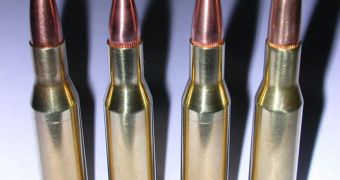Following the attack that saw US Representative Gabrielle Giffords being shot in the head by an assailant on Saturday, January 8, the issue of brain injuries has again been brought into the spotlight, with experts trying to determine what's needed for a person to survive following such an event.
The US official is being treated at the Arizona University Medical Center, and doctors taking care of her are saying that they are “cautiously optimistic” about her chances of survival. This is mostly owed to the fact that the bullet went right through her head.
Healthcare experts with the Center also revealed that, despite her wound to the left side of the head, the Representative was responsive to voice commands after the initial attack. She was operated some 38 minutes after shot was fired.
Experts at the Cedars-Sinai Medical Center in Los Angeles believe that a person's chances of surviving such a wound depend on a variety of objectively-accountable-for factors, as well as on sheer luck.
For example, it's very important that the bullet doesn't hit certain areas that are critical to the brain's functions, and also that it exits the skull. The speed at which the bullet travels, its angle of attack, as well as the type of point it sports are also decisive factors.
“A high-velocity bullet does more damage than a low-velocity bullet. [And, if] it stays in the brain, it does [even] more damage,” says a neuroscience expert at the Center.
According to Cedar-Sinai chairman of neurosurgery Dr. Keith Black, the damage is worst when the bullet passes through both brain hemispheres, rather than just one.
“The brain is somewhat redundant – it can sometimes tolerate losing one half,” Black explains, likening the situation with a pilot losing control over one of two engines on their aircraft.
Chances of survival also increase if the bullet does not hit areas of the brain responsible for controlling automated functions such as breathing and heartbeat, LiveScience reports. A person cannot remain conscious without the thalamus or the brain stem, neuroscientists say.
Survival rates also increase when bullets do not hit the primary blood vessels that bring oxygen to the brain. Without the precious chemical – of which the brain is the largest consumer in the body – the organ dies within 3 minutes, and the damage is irreversible.
An additional danger to gunshot victims is infection, which may be caused by bacteria or other microorganisms that were on the bullet when it got fired. Generally, doctors check for that rigorously, before declaring a patient healed.

 14 DAY TRIAL //
14 DAY TRIAL //